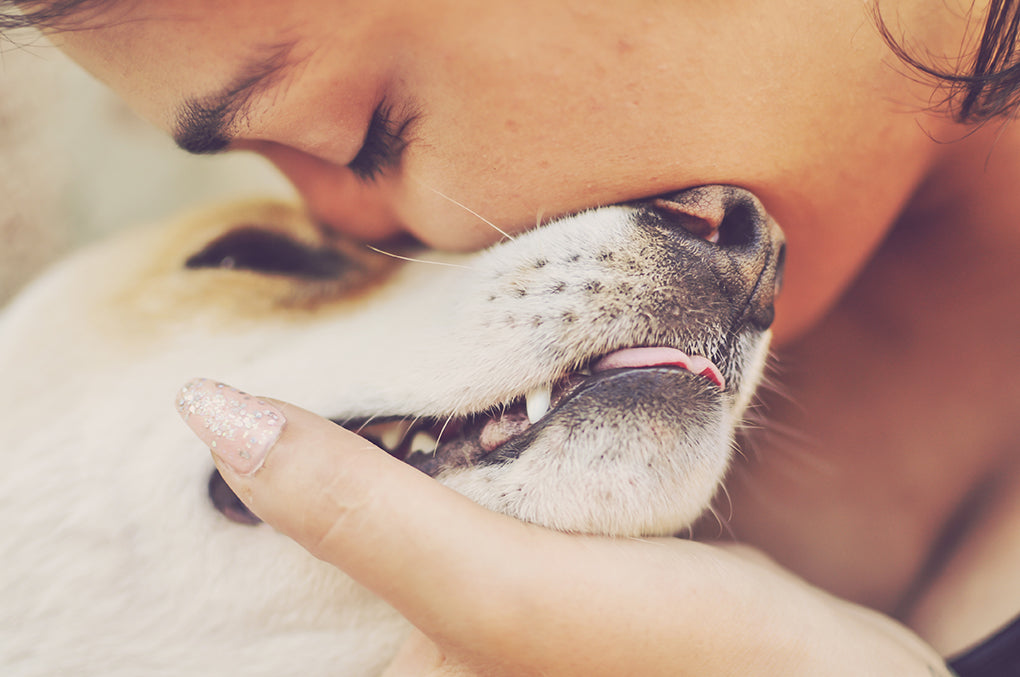
5 Things Every Dog Owner Should Know About Mammary Cancer in Female Dogs
If your dog is suffering from breast cancer, my thoughts are with you. It's certainly not easy to receive and cope with such a distressing diagnosis, and you're likely anxious and have many questions.
What is breast cancer (also known as mammary cancer) in dogs and what are the symptoms? What happens if a mammary tumor ruptures in dogs? What is the life expectancy? Are natural solutions available?
The purpose of this article is to answer all these questions and provide you with all the necessary information about breast cancer in dogs.
At HomeoAnimo ™ , we are a group of animal lovers and advocates. With our expertise, knowledge, and passion, we have been working to help thousands of pet owners around the world overcome their pet's health issues for over 20 years.
- Click to learn more: 👉 Support your dog fighting mammary CANCER with our NATURE L product 🐶
I hope you find the information in this article helpful and that you find the help you need!
Be sure to check out our Complete Guide to Cancer in Dogs to learn more about cancers affecting dogs.
What is breast cancer (mammary cancer) in dogs?
Breast cancer in dogs is sometimes called mammary cancer. This is because it is a type of tumor that affects the mammary tissue (or mammary glands) in dogs.
If you've found a lump on your dog's chest, it doesn't automatically mean it's cancerous. These mammary tumors, like all tumors, can be malignant (cancerous) or benign (non-cancerous), and about 50% of mammary tumors in dogs are non-cancerous.
Mammary cancer in dogs is the most common type of cancer diagnosed in middle-aged to older female dogs, especially those who have not been spayed. In fact, female dogs that have not been spayed are up to 52 times more likely to develop a mammary tumor than those who were spayed before the age of 6 months!
Of course, while breast cancer affects dogs much more frequently, male dogs can also be diagnosed with this cancer. Poodles, Dachshunds, and Spaniels are the breeds most likely to develop mammary cancer.
There is also a correlation between increased risk of breast cancer and obesity at a young age.
What are the signs of breast cancer in dogs?
Typically, most pet owners first recognize the signs of a mammary tumor when they see or feel a lump under the skin of the abdomen.
There are other signs of breast cancer in dogs that you should also be aware of, such as:
- Swollen and painful breasts
- Decreased appetite and weight loss
- Lethargy or weakness
Sometimes symptoms can be more severe if the breast tumor(s) leak or rupture.
Leaking mammary tumor in dogs
It is possible for the skin covering the breast tumor to turn into an ulcer. This means that a painful sore opens and forms on the skin. If this happens, you may notice bleeding or other discharge from the area.
Leaking mammary tumor in dogs
In even more severe cases, the masses can grow to a very large size. The weakened skin, put under tension by the tumor, can then rupture. Rupture of mammary tumors in dogs is quite rare, but it is a possible complication. It is therefore important to keep an eye on your pets' masses. Some pets will be recommended mass removal surgery by their veterinarian to avoid the risk of a rupture.
Breast Cancer in Dogs: Life Expectancy
The lifespan of a dog with mammary cancer depends on the size of the tumors, their severity, and their spread. Typically, dogs diagnosed with mammary cancer live 9 to 12 months, or up to 24 months if the tumor is small and has not spread to other parts of the body.
The biggest concern for dogs diagnosed with breast cancer is tumor recurrence, with a 24-90% chance of recurrence , depending on how advanced the tumor is.
Treatment of breast cancer in dogs
It depends a lot on your dog's specific circumstances, but your veterinarian may recommend surgery and/or chemotherapy as treatment options.
When faced with such an important and complex decision, it can be difficult to know which choice to make - many emotions are involved and countless pieces of information must be carefully considered.
Whichever treatment option you decide to go with, I know you're always looking for the best for your pet - and so are we!
When dealing with cancer, the goal is to strengthen your dog's immune system to fight the disease and to combat and prevent recurrences!
Our PIPTOANIMO is the Piptoporus Betulini mushroom. Medicinal mushrooms are specially designed to keep the body healthy in cases of cancer and tumors. It is safe and can be used alone or in addition to conventional treatments - even for long-term use !
If you have any further questions about breast cancer in dogs or any other health concerns regarding your pet, please contact us to see how we can help.
We're always here to help you make informed decisions about your pet's health. Feel free to call, email, or chat with us anytime.
Did this article provide you with the information you needed? Do you have a pet that is suffering from breast cancer? Leave a comment and let us know, and don't forget to share this article on social media so you can share this information with your friends!


















4 comments
Bonjour Monsieur BAVAY,
Merci de nous avoir contacté au sujet de votre belle yorkshire. Nous allons vous écrire par email pour en savoir plus et vous répondre.
Bien à vous,
HoemoAnimo.com
HomeoANimo
Bonjour madame,ma chienne Yorkshire terrier a une tumeur mammaire de plus ou moins 5 millimètres,,donc voilà ma question elle à eu 11 ans le mois dernier donc a t’il un risque de la faire opérer a cette âge,car j’ai peur de la perdre pendant l’opération,le vétérinaire me dit que sa en vaut la peine de l’opéré, mais j’ai peur je vie seul avec ma chienne,donc merci d’une réponse précise sur une opération d’une chienne de 11ans , merci beaucoup, cordialement
Bavay
Bonjour Madame Vanderborght, Merci de nous avoir contacté. Nous sommes vraiment désolé pour les soucis de santé de votre cheval. Nous allons vous faire parvenir sous peu un courriel pour vous poser quelques petites questions de santé à son sujet dans le but de vous acheminer par la suite une recommandation approprié à son état de santé. Cordialement, Homéoanimo.
Homéoanimo
Bonjour,
Mon cheval tousse, le veto est déjà venu plusieurs fois mais rien ne change!
Avez-vous une idée pour que cette toux disparaisse??? J’ai remarqué que les moutons
de mon voisin toussent aussi; Je commence à me douter de ces avions qui n"arrêtent pas
de nous assommer de chemtrails qui tombent naturellement dans les prairies durant toute la journée!!! Si vous avez quelque chose pour guérir cette toux, cela soulagerait bien mon cheval!!! Merci!!!!
lou
Leave a comment
This site is protected by hCaptcha and the hCaptcha Privacy Policy and Terms of Service apply.